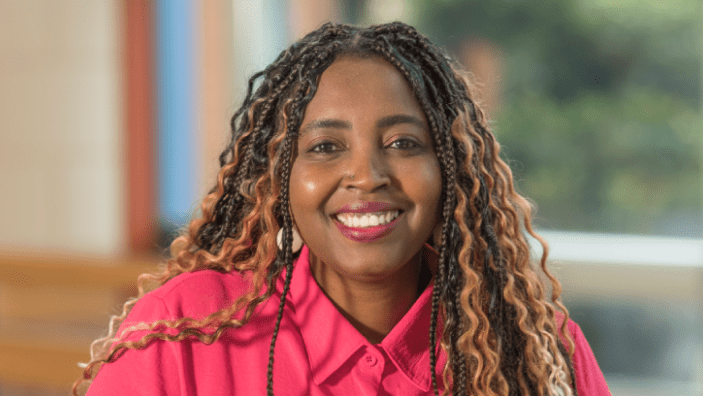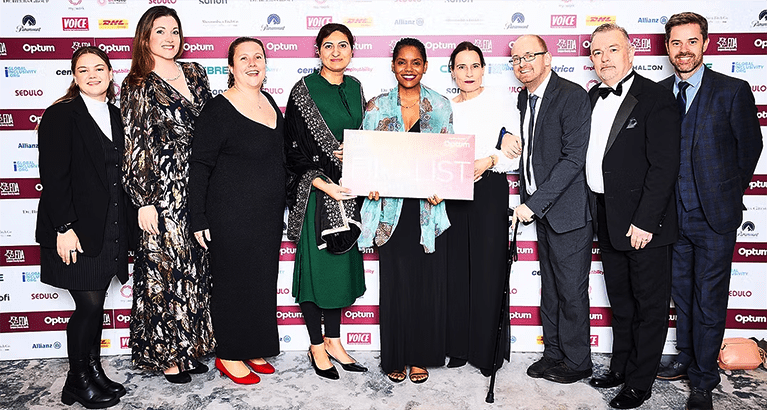Authentic inclusion: beyond surface-level initiatives
To pave sustainable pathways for Black professionals to ascend into senior leadership, organisations must transcend surface-level initiatives like mentorship and embed inclusion into their DNA.
Temitope emphasises the need for intentionality: “Empowering Black professionals through targeted leadership pipelines and fostering an inclusive culture that offers psychological safety is crucial.” He adds, “DEI must be woven into the fabric of organisational culture for those genuinely committed to creating meaningful and safe environments for Black professionals.”
Katija underscores the importance of structural transformation, from transparent career paths and unbiased promotion criteria to linking leadership incentives with measurable EDI outcomes. “It’s about scaling individual commitment into an organisational imperative that ensures Black professionals have both the visible role models and the fair, documented processes needed to advance into senior leadership,” she explains. She calls for inclusion to be recognised as more than an HR function: “It must be seen as a core leadership competency and a grassroots cultural movement.” Her vision champions authentic leadership practices that amplify diverse voices and ensure fair recognition for contributions.
DEI must be woven into the fabric of organisational culture for those genuinely committed to creating meaningful and safe environments for Black professionals
The transformative power of diverse perspectives on leadership
Both students reflect on how engaging with diverse viewpoints, particularly those of Black colleagues and mentors, has shaped their leadership philosophies. Listening, advocacy and proactive support emerge as pivotal tools for driving meaningful change.
Temitope shares, “True leadership is about listening deeply to diverse perspectives, which reflect lived experiences and reveal the real issues that need addressing.”
Katija reflects on her journey, noting, “While I am deeply grateful for the non-Black leaders who invested in me, their advocacy also highlighted a painful gap: the lack of proportional advocacy from Black leaders who had navigated similar paths.” This realisation inspired her philosophy of proactive stewardship, where she dedicates herself to creating structured opportunities, championing emerging Black professionals and embedding mentorship as a leadership cornerstone.
While I am deeply grateful for the non-Black leaders who invested in me, their advocacy also highlighted a painful gap: the lack of proportional advocacy from Black leaders who had navigated similar paths.
Confronting biases and redefining leadership
Katija’s experiences as the only woman or woman of colour in the room have profoundly shaped her leadership style. She recalls the immense pressure to excel and the limited margin for error, which transformed her approach in two key ways: “First, it forged in me an unwavering commitment to detail, preparation and excellence. Second, and more importantly, it instilled a deep sense of responsibility to create a different environment for those who come after me.”
Her leadership now prioritises championing others and creating space for others: she advocates loudly for her team and normalises growth through missteps.


Reflections on Black History Month ‘Standing Firm in Power and Pride’
Katija sees the theme as a call to action: “Standing firm in power and pride means never allowing yourself to be diminished or silenced by those who believe they are greater. It’s about knowing you have earned your place at the table and using your voice with confidence.”
For Temitope, Black History Month is “more than just a celebration of Black people and culture – it’s a time to reflect on our journey, confront the realities of the world we live in, and envision the kind of future we want for our children.” To him, standing firm means staying grounded in his values and using them as a compass to navigate an increasingly divided world.
Driving equity and inclusion for lasting change
The reflections of Katija and Temitope underscore the importance of equitable opportunities, authentic inclusion and celebrating the contributions of Black professionals in leadership. Black History Month serves as both a reminder of progress made and a call to action for the work ahead. By fostering leadership pipelines, advocating sponsorship and driving cultural change, we can dismantle barriers and build a future defined by equity and inclusion.
EDI on the Executive MBA programmes
Discover how EDI shapes the Cambridge EMBA experience – diverse cohorts, inclusive culture and lifelong impact through global leadership.





